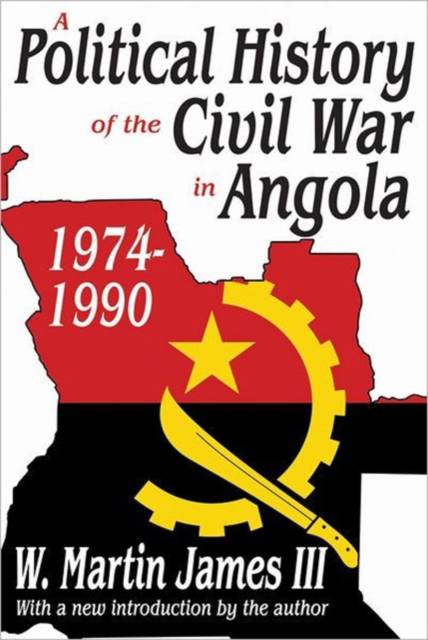
Door een staking bij bpost kan je online bestelling op dit moment iets langer onderweg zijn dan voorzien. Dringend iets nodig? Onze winkels ontvangen jou met open armen!
- Afhalen na 1 uur in een winkel met voorraad
- Gratis thuislevering in België vanaf € 30
- Ruim aanbod met 7 miljoen producten
Door een staking bij bpost kan je online bestelling op dit moment iets langer onderweg zijn dan voorzien. Dringend iets nodig? Onze winkels ontvangen jou met open armen!
- Afhalen na 1 uur in een winkel met voorraad
- Gratis thuislevering in België vanaf € 30
- Ruim aanbod met 7 miljoen producten
Zoeken
A Political History of the Civil War in Angola, 1974-1990
€ 90,45
+ 180 punten
Omschrijving
When Portugal's colonial rule in Angola ended in 1974, three liberation groups-UNITA (National Union for the Total Independence of Angola), FNLA (National Front for the Liberation of Angola), and MPLA (Popular Movement for the Liberation of Angola)-agreed to a tripartite movement for the fledgling nation. Conflicts quickly arose and the MPLA, with Cuban and Soviet assistance, drove its rivals from the capital, instigating a civil war, which continues into three periods (1975-1991, 1992-94, and 1998-2002). This volume covers the first period, focusing on the political history of the UNITA movement and its struggles with the MPLA. The Angolan civil war was the product of personal jealousies, contrasting ideologies, and ethnic animosities. From its inception, the conflict between UNITA and Angola's Marxist government was an international affair involving the U. S., the USSR, China, and many African states: W. Martin James III, who wrote his book near the close of the first period of civil war, contends that despite Gorbachev's "new thinking" and talk of peaceful solutions to regional conflicts, Soviet policy toward Angola marked a reversion to the Brezhnev Doctrine. The biggest MPLA-Cuban offenses occurred during Gorbachev's tenure with Soviet advisers at the brigade level directing an MPLA offensive. American policy toward Angola is also examined here. This is the first book to emphasize the dynamic role of UNITA in the Angolan liberation movement. James acknowledges that the importance of foreign powers in guaranteeing a government of national reconciliation. Just as important are strategies of compromise requiring trust in a political context where it is violated and submission for the common good where defiance is a remnant of the colonial past. Foreign policy analysts, African area specialists, and scholars of post-colonial history find this volume indispensible.
Specificaties
Betrokkenen
- Uitgeverij:
Inhoud
- Aantal bladzijden:
- 328
- Taal:
- Engels
- Reeks:
Eigenschappen
- Productcode (EAN):
- 9781412815062
- Verschijningsdatum:
- 30/03/2011
- Uitvoering:
- Paperback
- Formaat:
- Trade paperback (VS)
- Afmetingen:
- 152 mm x 226 mm
- Gewicht:
- 453 g

Alleen bij Standaard Boekhandel
+ 180 punten op je klantenkaart van Standaard Boekhandel
Beoordelingen
We publiceren alleen reviews die voldoen aan de voorwaarden voor reviews. Bekijk onze voorwaarden voor reviews.










